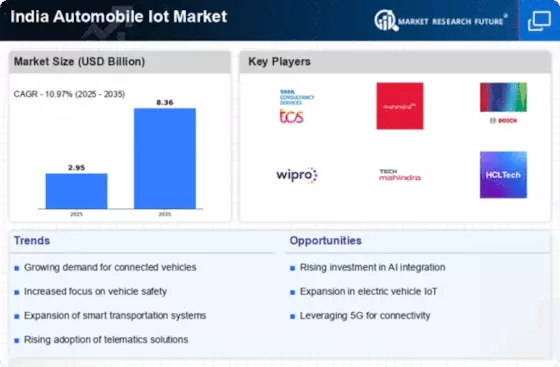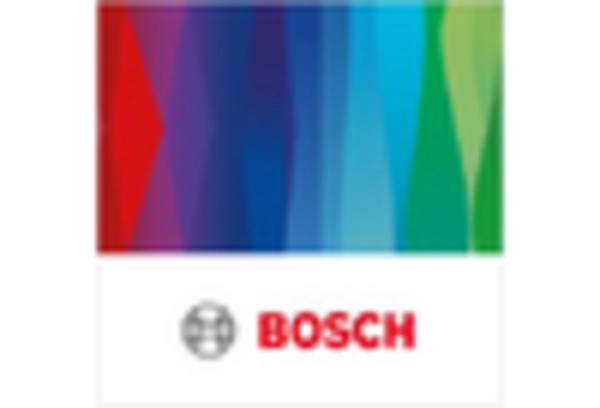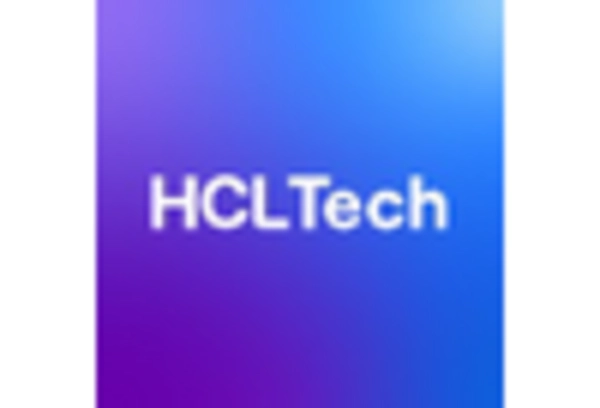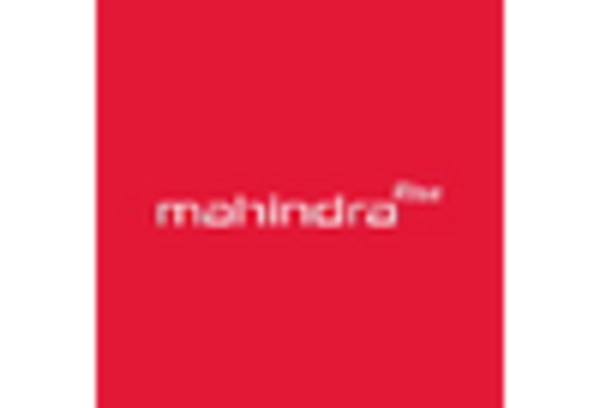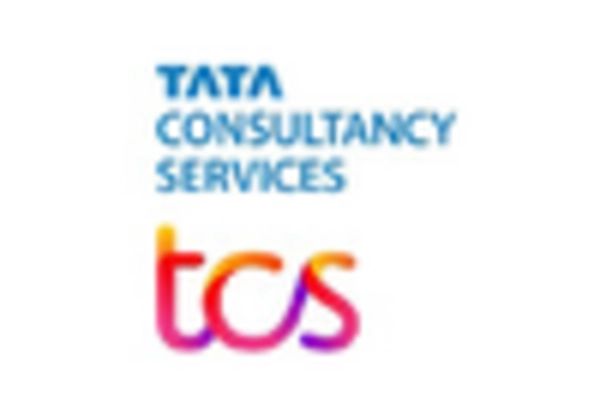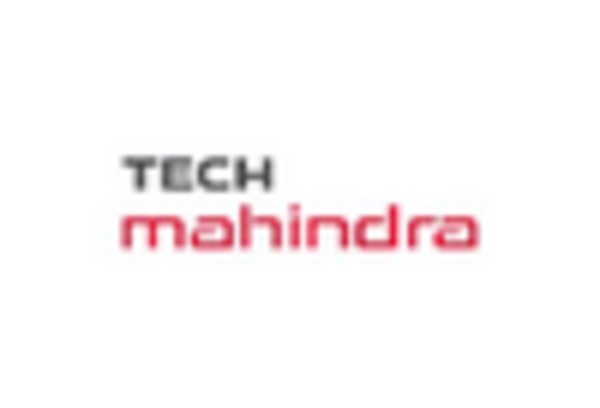Growing Focus on Sustainability
The growing focus on sustainability is emerging as a crucial driver for the India Automobile IoT Market. With increasing awareness of environmental issues, consumers and manufacturers alike are prioritizing eco-friendly practices. The integration of IoT technologies in vehicles facilitates better fuel efficiency and reduced emissions, aligning with global sustainability goals. As of January 2026, the Indian electric vehicle (EV) market is projected to account for 30% of total vehicle sales by 2030, largely due to the adoption of IoT solutions that enhance the performance and appeal of EVs. This shift towards sustainable mobility is prompting automakers to invest in IoT technologies that support greener alternatives, thereby fostering growth in the India Automobile IoT Market.
Rising Demand for Smart Vehicles
The India Automobile IoT Market is experiencing a notable surge in demand for smart vehicles, driven by consumer preferences for enhanced connectivity and automation. As of January 2026, the market for connected cars in India is projected to reach approximately USD 10 billion by 2027, reflecting a compound annual growth rate of around 25%. This trend is largely influenced by the increasing adoption of advanced driver-assistance systems (ADAS) and infotainment features. Consumers are increasingly seeking vehicles that offer seamless integration with mobile devices, real-time navigation, and remote diagnostics. Consequently, automakers are investing heavily in IoT technologies to meet these evolving consumer expectations, thereby propelling the growth of the India Automobile IoT Market.
Expansion of Automotive Ecosystem
The expansion of the automotive ecosystem in India is significantly influencing the India Automobile IoT Market. The rise of startups and technology companies focusing on automotive IoT solutions is creating a dynamic environment for innovation. Collaborations between traditional automakers and tech firms are becoming increasingly common, leading to the development of new products and services that enhance vehicle connectivity and functionality. As of January 2026, the number of IoT startups in the automotive sector is estimated to have increased by 40% over the past two years, indicating a vibrant ecosystem that supports growth. This collaborative approach is likely to drive advancements in the India Automobile IoT Market, as stakeholders work together to create integrated solutions that meet consumer demands.
Technological Advancements in IoT
Technological advancements in IoT are playing a pivotal role in transforming the India Automobile IoT Market. Innovations in sensor technology, data analytics, and cloud computing are enabling the development of sophisticated vehicle systems that enhance safety, efficiency, and user experience. For instance, the integration of artificial intelligence (AI) and machine learning (ML) in vehicle systems allows for predictive maintenance and real-time monitoring, which can significantly reduce operational costs for fleet operators. As of January 2026, the market for IoT-enabled fleet management solutions in India is expected to grow at a CAGR of 20%, indicating a strong inclination towards leveraging technology for improved vehicle performance. This technological evolution is likely to drive further investments in the India Automobile IoT Market.
Government Regulations and Policies
The India Automobile IoT Market is significantly shaped by government regulations and policies aimed at promoting the adoption of IoT technologies in vehicles. The Indian government has introduced various initiatives, such as the National Electric Mobility Mission Plan (NEMMP) and the Faster Adoption and Manufacturing of Hybrid and Electric Vehicles (FAME) scheme, which encourage the integration of IoT solutions in automobiles. These policies not only aim to enhance vehicle efficiency and reduce emissions but also foster innovation in the automotive sector. As a result, automakers are increasingly aligning their strategies with these regulations, leading to a more robust IoT ecosystem in the Indian automotive landscape. The government's commitment to smart transportation solutions is likely to further stimulate growth in the India Automobile IoT Market.


